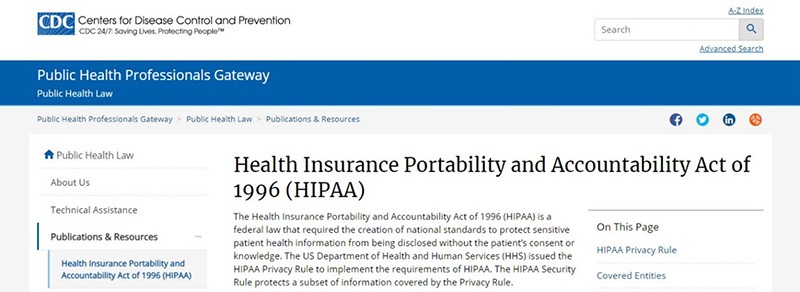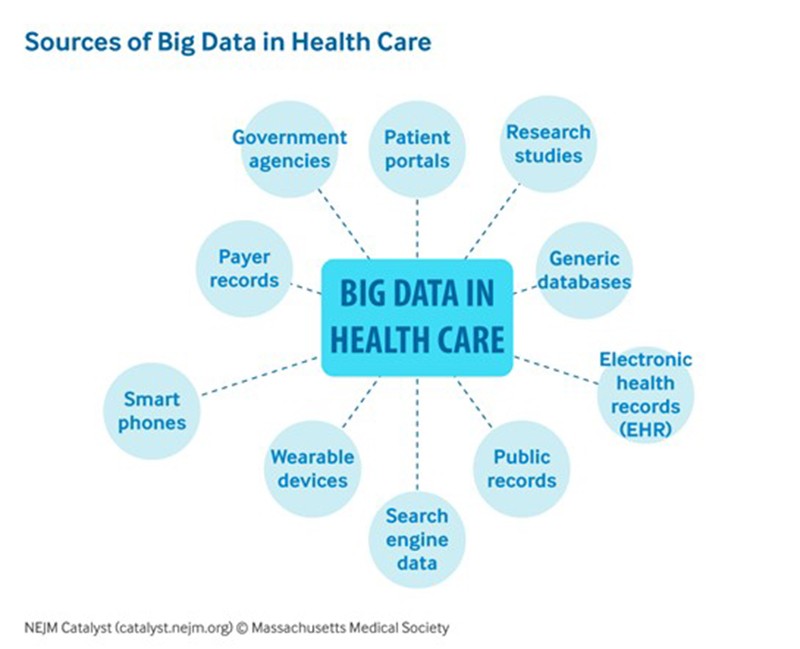The healthcare industry is ever striving to deliver optimum patient care with efficient healthcare data management. With huge volumes of patient data flowing in, healthcare organizations need efficient ways to store and make use of this data. A highly reliable data management system is vital to harness the data and ensure better access. So, to optimize the use of data and enhance the operational performance, healthcare organizations can outsource data management to database development companies that can assist with quick database and application development and offer a tested software product to meet your specific requirements.
Importance of Healthcare Data Management System
Data management in healthcare refers to a methodical organization of data in a digital format that helps you to analyze and integrate medical data efficiently. Healthcare data serves doctors, patients, insurance providers etc. and this data is scattered across many sources.
- Electronic Health Records
- Clinical and claims systems
- HR and financial applications
- Third-party sources
A lot of information is gathered from many such sources, and without a proper data management system it is difficult to decipher the information and utilize it effectively. It helps to standardize and organize data into a unified integration platform for better access to data. Easy and ready access to data means better patient care.
Healthcare data management allows you to extract valuable insights that can improve medical outcomes and protect patient data while ensuring HIPAA compliance.
Challenges of Healthcare Data Management
Due to complexities in data, the nature of the system, and the data they produce, the healthcare industry faces many challenges in data management which are as follows:
- Being HIPAA Compliant: Poor handling of healthcare data can lead to poor patient care. Patient data is highly sensitive and to ensure its safety and confidentiality, healthcare organizations should be HIPAA compliant. However, this has become a challenge for providers. As systems become old and are replaced with new technologies, healthcare data managers find it difficult to handle data. For example, hospital information system (HIS) managers who are used to operating a closed-network system, are unfamiliar with implementing shared data access and security protocols using technologies such as cloud computing. This can lead to data breach and the cost of data breach in healthcare industry is much higher than any other industries.
- Poor Integration between Clinical and Administration Systems: Within a healthcare organization, there is always a gap between patient care and administration. The medical information entered should reflect on the insurance claims and patient billing. Discrepancies are often seen due to lack of proper integration between both the systems. But with a good data management system, all the data can be stored safely and tracked for administrative as well as clinical purposes.
- Data Silos: There are many departments in a hospital or healthcare unit and typically, each department develops their own system for processing data. These departments often store information in a central database in different formats like spreadsheets, scanned paper documents, MRI scan results and so on. Data in these formats need to be well managed, avoiding data duplications and inconsistencies, and this is a common challenge that most of the organizations face. One way to resolve such issues is by using a single database with multiple interfaces that can serve each department’s needs.
- Frequent change in Data: Patient data and their medical reports keep changing frequently. Patient data such as name, address, patient conditions etc are modified or physicians may recommend some changes in treatment. If the changes in data are not updated in a timely manner, it can result in incomplete or inaccurate data. The state of a patient’s health also keeps changing over the years and there will be changes in their test report or medications or treatment plan. Therefore, there must be a constant review of data management methods to improve the quality of care and treatment outcomes.
- Mobile Computing: With patient data getting digitized, physicians and other healthcare providers now use computer tablets and handheld data entry systems to scribble an to make entries in the medical charts. Although this improves efficiency, access to patient data using these devices can compromise the safety of data. Therefore, Hospital Information System (HIS) managers must provide secure wireless access through the healthcare organization with proper bandwidth to support the rising use of handheld devices. Healthcare organizations should develop and implement new security systems and compliance protocols for healthcare physicians who want to use their own mobile computing hardware.
- Patient Data Sharing: Having a centralized location for storing patient data is an effective practice that makes sharing of data safe and secure. But sharing patient data with external healthcare providers becomes difficult even with EHR systems. Even though EHR is a standardized way of storing patient data, external health providers, pharmacies and others may use different systems and protocols. This makes sharing complete medical records and integrating different medical data management systems difficult. This is an ongoing challenge in healthcare data management.
- Operational Analytics: Healthcare data including EHR data is an essential part of measuring operational efficiency, and healthcare workforce management is measured using patient care and healthcare data. Hospital Information System (HIS) managers are looking for various strategies to extract data that can be used to study productivity and profitability. Such analysis is required to identify profit centers and areas of practice that need to be properly scrutinized and revised.
- Lack of Analytics Talent: Unlike other industries, there is considerable dearth of analytics experts in the healthcare sector. There is scarcity of data scientists in the market, especially someone with healthcare background who can use big data analytics to assess healthcare operations.
Image Source: - Data Growth: Healthcare organizations are all getting digitized to improve efficiency and workflow, but digitization comes with rapid increase in the volume of data generated daily in all departments. While one can manage data created and stored as text in databases and images stored in compressible image files with relative ease, managing other unstructured data is not as convenient.
From the above-mentioned challenges data management is difficult in the healthcare sector. For healthcare professionals, having accurate and efficient database application is essential to ensure that the patient data and other reports such as health conditions, treatments administered, tests and scans conducted, and other updated data gets circulated and is easily accessible to the concerned physicians. This can be achieved by outsourcing to reliable database development companies. With the use of high-tech platforms and software developers, we provide customized database management that is user friendly and HIPAA-compliant; we also ensure safety of data.








